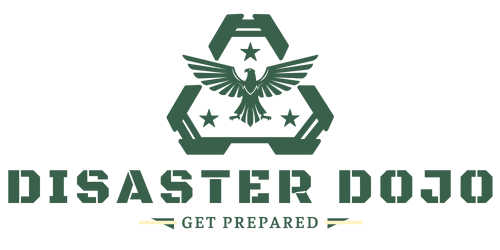In a world where uncertainty and unforeseen challenges seem to be the norm, have you ever wondered why some individuals choose to become preppers? These individuals have intentionally embraced a lifestyle that prioritizes preparedness, whether it be for natural disasters, economic instability, or societal upheaval. With a focus on self-sufficiency and disaster readiness, preppers aim to safeguard their well-being and that of their loved ones. Embarking on a journey fueled by the desire for peace of mind, they stockpile essential supplies, acquire survival skills, and establish networks of like-minded individuals. But what motivates people to join this growing community? Let’s explore the intriguing reasons behind the rise of prepping and delve into the diverse motivations that drive people to become preppers.

Reasons for Becoming a Prepper
Desire for Self-Sufficiency
One of the primary reasons people become preppers is their desire for self-sufficiency. By being prepared for various scenarios, preppers aim to rely less on external resources and become more self-reliant. This includes being able to provide for their basic needs such as food, water, and shelter without depending on outside assistance.
Fear of Natural Disasters
Natural disasters can strike at any time, leaving individuals and communities vulnerable and in dire need of resources. This fear of being caught off guard and unprepared motivates many to become preppers. By stocking up on essential supplies, creating emergency plans, and learning survival skills, preppers aim to mitigate the impact of natural disasters on themselves and their loved ones.
Concerns about Political Instability
In today’s uncertain world, political instability is a growing concern for many individuals. From civil unrest to economic crises, the fear of unpredictable events happening can drive people to adopt a preparedness mindset. Preppers take proactive steps to ensure their safety and well-being in case of political instability, such as having a secure shelter, self-defense training, and contingency plans.
Personal Safety and Security
The desire for personal safety and security is a fundamental human instinct. Becoming a prepper allows individuals to take control of their own safety by being prepared for potential threats and dangers. This may involve learning self-defense techniques, investing in home security systems, and having emergency plans in place to protect oneself and loved ones from harm.
Economic Instability
Economic instability, whether on a global or personal level, can greatly impact individuals and their livelihoods. Preppers recognize the importance of being prepared for financial downturns, job loss, or hyperinflation. By having a financial safety net, diversifying investments, and acquiring practical skills, they strive to minimize the impact of economic instability on their lives.
Health and Pandemic Risks
In light of recent global health crises, such as the COVID-19 pandemic, concerns about health and pandemic risks have become prominent catalysts for prepping. Preppers understand the potential disruptions to healthcare systems and supply chains during a crisis. They prioritize maintaining good health, stockpiling essential medications, and having proper hygiene practices to minimize the risk of illness.
Environmental Concerns
Growing awareness of climate change and its consequences has led some individuals to become preppers. They recognize that environmental disasters such as extreme weather events, wildfires, and pollution can disrupt normal life. By adopting sustainable practices, conserving resources, and preparing for the potential consequences of environmental degradation, preppers aim to protect themselves and their communities.
Desire to Protect Loved Ones
The safety and well-being of loved ones are paramount for many preppers. They feel a strong sense of responsibility towards their family and friends, motivating them to become prepared for any potential threats or emergencies. Whether it’s ensuring sufficient food and water supplies, teaching essential survival skills, or developing communication plans, preppers focus on safeguarding those they care about.
Past Traumatic Experiences
Past traumatic experiences can shape an individual’s mindset and drive them to become preppers. Those who have endured natural disasters, accidents, or other life-altering events may be more inclined to prioritize preparedness. These experiences serve as a reminder of the vulnerability of life and reinforce the need to be ready for unexpected hardships.
Adoption of a Preparedness Mindset
For some, becoming a prepper is not driven by a specific fear or event but rather a philosophical shift in mindset. They embrace the idea of being proactive and self-reliant, recognizing the unpredictable nature of life. This mindset encompasses being prepared for a variety of scenarios, from natural disasters to economic downturns, and allows individuals to approach life with a sense of resilience and adaptability.
Benefits of Being a Prepper
Peace of Mind
One of the significant benefits of being a prepper is the peace of mind it brings. Knowing that you are prepared for potential emergencies or disruptions allows you to navigate life with a sense of confidence and calmness. The knowledge that you have taken steps to protect yourself and your loved ones can alleviate anxiety and foster a sense of security.
Increased Resilience
Preppers develop a high level of resilience through their preparedness efforts. By acquiring necessary skills, stockpiling essential supplies, and having contingency plans, they are better equipped to overcome challenges and adapt to unexpected situations. This resilience extends beyond emergencies, as preppers often develop problem-solving skills and a mindset that embraces adaptability.
Ability to Help Others
An often overlooked benefit of being a prepper is the ability to assist others in times of need. Preppers who have prepared resources and knowledge can be valuable assets to their communities during emergencies. They can provide aid, share their skills, and contribute to the overall well-being and recovery of those around them. This sense of altruism and contribution boosts both individual and community resilience.
Sense of Empowerment
Being a prepper empowers individuals to take control of their lives and destiny. Instead of relying solely on external sources for basic necessities, preppers proactively acquire knowledge, resources, and skills to become self-sufficient. This sense of empowerment allows them to face challenges head-on and navigate through life with confidence and a belief in their abilities.
Practical Life Skills
Prepping encourages the development of practical life skills that can be applied in various situations. From learning first aid and self-defense techniques to growing food and managing resources, preppers acquire a diverse range of skills that have real-life applications. These skills not only increase self-sufficiency but also have practical benefits in day-to-day life.
Sense of Community
The prepping community offers a sense of belonging and camaraderie. Engaging with like-minded individuals who share similar values and preparedness goals can be comforting and inspiring. Preppers often build supportive networks where they can exchange knowledge, provide assistance, and foster a sense of unity. This sense of community helps to strengthen individual resolve and promotes collective resilience.
Financial Savings
Prepping can lead to significant financial savings in the long run. By investing in durable goods, buying supplies in bulk, and adopting frugal habits, preppers are often able to reduce their expenses. Additionally, the focus on self-sufficiency encourages a more sustainable and mindful approach to consumption, leading to reduced waste and unnecessary expenses.
Health and Well-being
The prepper lifestyle often promotes good health and well-being. By prioritizing physical fitness, maintaining a healthy diet, and focusing on hygiene practices, preppers are better equipped to handle demanding situations. Furthermore, the peace of mind that comes with preparedness can positively impact mental health and overall well-being.
Reduced Stress
When you are prepared for potential emergencies, day-to-day stress is reduced significantly. Knowing that you have plans in place and necessary resources readily available can alleviate anxiety caused by uncertainty. Preppers tend to have a sense of control over their lives, leading to decreased stress levels and improved overall mental well-being.
Preservation of Personal Assets
Being a prepper involves safeguarding personal assets in different ways. From protecting physical belongings through security measures to preserving financial stability through diversification and contingency plans, preppers take steps to ensure their assets are not easily lost or compromised. This preservation mindset allows preppers to navigate challenges more effectively and safeguard their resources for the future.

Common Prepping Strategies
Stockpiling Food and Water
Stockpiling essential food and water supplies is a central prepping strategy. Preppers aim to have an adequate supply of non-perishable food items and clean drinking water to sustain themselves and their loved ones during emergencies or disruptions in the supply chain.
Building Emergency Kits
Emergency kits provide preppers with essential items and tools they may need in the event of an emergency. These kits typically include items such as first aid supplies, flashlights, batteries, blankets, and communication devices.
Learning Survival Skills
Preppers invest time and effort in acquiring essential survival skills. From fire-building and navigation to foraging and self-defense, these skills empower individuals to survive and thrive in challenging situations.
Creating a Bug Out Plan
A bug-out plan involves having a well-thought-out evacuation strategy in place. Preppers identify safe locations, establish communication plans, and pack essentials to swiftly leave their homes and move to a secure location in case of a disaster or threat.
Self-Defense Training
Physical self-defense training is crucial for preppers to protect themselves and their families during emergencies. Learning techniques such as martial arts or defensive shooting can enhance personal safety and increase confidence.
Gardening and Food Production
Preppers often develop skills in gardening and food production to supplement their food supplies. Growing fruits, vegetables, and herbs not only provides a sustainable food source but also increases self-sufficiency.
Alternative Energy Sources
To reduce dependence on the electrical grid and ensure a stable power supply during emergencies, preppers may invest in alternative energy sources such as solar panels, wind turbines, or generators.
Establishing Communication Channels
During emergencies, reliable communication is vital. Preppers establish various communication channels, including ham radios, walkie-talkies, and online forums to stay connected with their community and receive critical information.
Financial Preparedness
Being financially prepared involves diversifying investments, reducing debt, and having emergency funds in place. Preppers prioritize financial stability to ensure they can weather economic instability or unexpected expenses.
Continuous Learning and Adaptation
Prepping is an ongoing process that requires continuous learning and adaptation. Preppers stay informed about current events, new technologies, and evolving risks to refine their strategies and make necessary adjustments to their preparedness plans.
Prepping Stereotypes and Misconceptions
Exaggerated Portrayal in Popular Media
Popular media often portrays preppers in an exaggerated and sensationalized manner, focusing solely on extreme behaviors or doomsday scenarios. This narrow depiction can perpetuate stereotypes and misconceptions about preppers.
Preppers as Paranoid and Extreme
Preppers are sometimes labeled as paranoid individuals excessively focused on worst-case scenarios. However, most preppers are rational individuals who seek to be prepared for a range of situations, including everyday emergencies, and do not necessarily expect the end of the world.
Criticism of ‘Doomsday’ Mentality
Another misconception is the assumption that preppers solely prepare for doomsday scenarios. While some individuals may adopt this perspective, many preppers focus on practical preparedness for more realistic emergencies and disruptions.
Stigmatization of Preppers
Preppers can face stigmatization due to misunderstandings and misrepresentations. This stigma can lead to isolation and reluctance to share preparedness efforts with others, hindering the potential for collaboration and community resilience.
Lack of Understanding
Misunderstandings about prepping often stem from a lack of knowledge and firsthand experience. Without understanding the motivation behind preparedness efforts, it can be challenging to appreciate the practicality and benefits of prepping.
Misrepresentation of Motivations
The motivations behind becoming a prepper are diverse and often rooted in genuine concerns for personal safety and the well-being of loved ones. It is important to recognize the variety of reasons people choose this lifestyle and understand that motivations can go beyond extreme scenarios.
Unrealistic Expectations
Preppers are sometimes criticized for having unrealistic expectations or dedicating excessive resources to preparedness. However, they understand that the goal is not to predict the future with certainty but rather to reduce vulnerability and increase resilience in the face of uncertainties.

Psychological and Sociological Perspectives
Psychological Factors
Several psychological factors contribute to the adoption of prepping behaviors. These can include general feelings of anxiety or a need for control, a desire for security, and a fear of the unknown. Prepping provides individuals with a sense of control and preparedness, which can alleviate anxieties and provide comfort.
Sociological Factors
Sociological factors also play a role in shaping prepping behavior. Cultural norms, personal experiences, and social influences can influence an individual’s decision to become a prepper. Prepping can also be seen as a response to societal issues, such as a lack of trust in institutions or concerns about the reliability of external support systems.
Need for Control and Security
Prepping satisfies the innate need for control and security. By actively preparing for potential emergencies and disruptions, individuals gain a sense of control over their lives and reduce uncertainties. This need for control is a fundamental aspect of human psychology.
Herding Behavior
Herding behavior, the tendency of individuals to follow the actions and behaviors of a larger group, can influence prepping behavior. When individuals observe others engaging in preparedness activities, they may feel compelled to do the same to ensure they are not left behind or unprotected in times of crisis.
Sense of Identity and Belonging
Prepping can provide individuals with a sense of identity and belonging. The shared values, goals, and practices within the prepping community can foster a sense of camaraderie and connection. Preppers often find support and understanding within this community, reinforcing their identity as a prepper.
Cognitive Biases and Heuristics
Cognitive biases and heuristics, such as risk perception biases and availability heuristic, can influence prepping behavior. These biases can lead individuals to overestimate the likelihood of certain events, such as natural disasters or economic collapses, and prioritize preparedness accordingly.
Social Amplification of Risk
The social amplification of risk theory suggests that risks and perceived threats can be amplified through the interaction between media, social networks, and public reaction. Preppers may be influenced by these societal discussions and media portrayals, leading them to adopt preparedness measures as a response to perceived risks.
Culture and Subcultures
Culture and subcultures can shape prepping behavior. Cultural values, beliefs, and norms regarding self-sufficiency, individualism, and the role of government can influence the decision to become a prepper. Additionally, subcultures within the prepping community, such as homesteaders or off-grid enthusiasts, further shape the practices and perspectives of preppers.
In conclusion, people become preppers for a variety of reasons, ranging from a desire for self-sufficiency and fear of natural disasters to concerns about political instability and past traumatic experiences. Being a prepper offers benefits such as peace of mind, increased resilience, and the ability to help others. Common prepping strategies include stockpiling food and water, learning survival skills, and establishing communication channels. However, prepping is often misunderstood, leading to stereotypes and misconceptions. Psychological and sociological factors, such as the need for control, herding behavior, and sense of identity, shape prepping behavior. By recognizing the motivations and benefits of prepping, we can better understand and appreciate the preparedness mindset.


